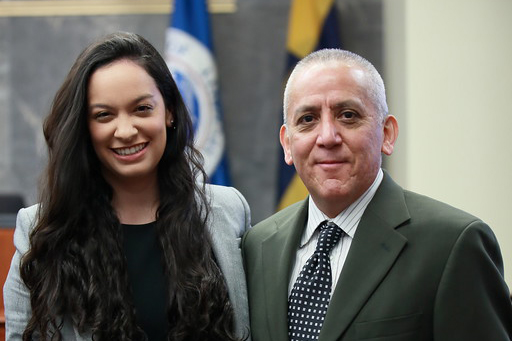Dan Kowalski reports for LexisNexis Immigration Community:
Yahm v. Garland, unpublished, 5th Cir., 05-31-22
https://www.ca5.uscourts.gov/opinions/unpub/20/20-60914.0.pdf
“Elvis Njenula Yahm, a citizen of Cameroon facing removal, sought asylum, withholding of removal, and relief under the Convention Against Torture (CAT) based on his pro-Anglophone political opinion. An immigration judge denied all three avenues for relief, and the Board of Immigration Appeals (BIA) dismissed Yahm’s appeal. … A recent decision supports Yahm’s view that an adverse credibility finding does not relieve the agency of its obligation to also consider documentary support for a CAT claim. See Arulnanthy v. Garland, 17 F.4th 586 (5th Cir. 2021). … Because Yahm offered nontestimonial evidence of country conditions in Cameroon, the BIA erred by not considering it in the context of his CAT claim and instead treating Yahm’s lack of credibility as dispositive. See Arulnanthy, 17 F.4th at 598. Yahm’s petition for review is GRANTED and these proceedings are REMANDED for the BIA to address the CAT claim consistent with Arulnanthy.”
[Hats off to Keith S. Giardina!]
*******************
Way to go, Keith! Congrats! Winning justice for asylum seekers in the 5th Circuit is no mean feat!
The 5th Circuit decision in Arulnanthy sounds very much like the 4th Circuit’s decision in Camara v. Ashcroft, 378 F. 3d 361 (4th Cir. 2004). Camara actually changed for the better the preparation, presentation, and most of all results in asylum cases in the 4th Circuit.
I consider it the “precursor” to the REAL ID provision now incorporated in the INA requiring IJ’s and the BIA to consider the “the totality of the circumstances, and all relevant factors,” in making credibility determinations. If that is actually done, which it isn’t in far too many cases in today’s broken Immigration Courts, the results are likely to be far more positive for asylum seekers and other respondents seeking relief in Immigration Court.
The “Camara effect” was real. For example, in 2004, on the “eve of Camara,” the asylum denial rate at the Arlington Immigration Court, where I sat, in the 4th Circuit, was in excess of 70%. By the time I retired in 2016, it was the polar opposite. The asylum grant rate exceeded 70%! SOURCE: TRAC Immigration.
Of course, no one factor is responsible for that positive change. And, I acknowledge that in the Charlotte Immigration Court, also in the 4th Circuit, where several judges were reknowned for their hard-core anti-asylum attitudes, the denial rates remained disturbingly above the national average. And, of course, the “institutionalized anti-asylum bias” ushered in and promoted at EOIR by the Trump regime resulted in another dramatic, totally unjustified, downturn in asylum grants by EOIR across America after 2016.
Nevertheless, positive appellate guidance on asylum is a major factor in establishing and maintaining due process in the Immigration Courts. Unfortunately, almost none of that expert positive guidance on asylum and other forms of relief comes from Garland’s BIA precedents. Additionally, although some of his appointments have been welcome, overall, Garland has done a very poor job of bringing in dynamic progressive expert leaders and judges to reverse the anti-asylum, anti-due-process, anti-immigrant “culture” that continues to haunt EOIR at all levels.
The “results” of his dysfunctional courts speak for themselves. Backlogs build, Circuit Courts struggle with EOIR’s poor “haste makes waste” work product, and decisional consistency on asylum is shockingly, “tragicomically” lacking!
In almost all ways, this system has seriously regressed in the past decade, even while eating up more resources! That’s about as much of an “engineered lose-lose” as one can imagine! Yet, Biden, Harris, and Garland appear impervious to this glaring, “fixable” problem that threatens our entire justice system!
Meanwhile, could even the conservative judges of the 5th Circuit be tiring of substandard work product inflicted on them by Garland’s dysfunctional EOIR? Reprehensibly, this is by no means the first “bogus asylum denial” by Garland’s EOIR involving a Cameroonian claim to be soundly rejected by the 5th. https://immigrationcourtside.com/2022/05/20/%f0%9f%8f%b4%e2%98%a0%ef%b8%8fassembly-line-injustice-eoir-most-conservative-u-s-circuit-court-faults-bogus-asylum-denial-for-cameroonian-that-garlands-doj-defended/
Shouldn’t racial justice advocates be all over Garland, Monaco, Gupta, and Clarke for the EOIR’s disgraceful performance on asylum claims involving Cameroonians and other applicants of color! If not, why not? The entire “progressive social justice community” should be expressing “collective outrage” to the Biden Administration about the Garland DOJ’s disgraceful performance at EOIR and on other human rights issues involving race and immigration.
It’s also worthy noting, as my Round Table colleague retired Judge Jeffrey Chase has pointed out before, that the Biden Administration has granted TPS to Cameroonians in the U.S. So, there is really no issue about the truly miserable human rights conditions there. That is, apparently, except in Garland’s Immigration Courts where the “programmed to deny” and “good enough for government work” mentalities continue to prevail — even where the stakes are life or death!
Additionally, the regulations implementing the Convention Against Torture (“CAT”) at EOIR initially became effective on Mar. 22, 1999 — over two decades ago. I remember that at one of the next Immigration Judge Conferences, probably in 1999 or 2000, the training specifically instructed that because of the country-conditions related nature of CAT, adverse credibility rulings against a respondent were not determinative of CAT claims.
Yet, more than two decades later, Immigration Judges and, worse yet, the BIA are still making that same fundamental error! How does this make the idea that EOIR is an “expert court” or that “constitutional due process is being protected at EOIR” anything other than a “sick joke.” Yet, the mockery of justice continues and nobody at Justice, from the top down, is being held accountable for stomping on life-determining legal and Constitutional rights! Why?
🇺🇸Due Process Forever!
PWS
06-01-22










